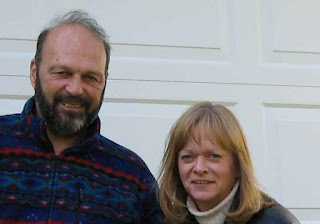Whenever a loved one is hit with a diagnosis of a major illness, like dementia or cancer, it is a very traumatic experience. Some will outwardly exhibit the range of emotions that one would expect, like denial, fear, anger, and sadness. In others, those emotional responses may not be evident. They become aloof, distant. They may or may not be dealing with it.
The long-term consequences of that diagnosis can be devastating. Once they start to think it through, they begin to experience the effects of the trauma. They feel anger about being in this situation at all. They feel anxiety and confusion as they start to think about what they may need to do about it. And finally, as they grip the reality, they feel sadness over what they will be experiencing in the future. And those are not just the feelings of the patient, but also of the loved ones of that patient... especially those that chose to be caregivers.
I knew nothing about being a caregiver. For that matter, I knew little about dementia. We all have these concepts of what it means to have dementia, but the details are varied and important. We talk about Alzheimer's, but that is just one form of dementia, albeit the most common. There is some much to learn. Where do I start? The answer to that is easy... the Alzheimer's Association. They have a ton of material to help you understand dementia and another ton of material on what you need to know and do as a caregiver. Not just educational materials, but what it is like to be the patient or the caregiver....insight in the first person. There are other excellent resources available including the National Institutes of Health and the Lewy Body Dementia Association.
The point of this, speaking as a caregiver, is not just to list resources, because there are a lot of good ones out there. The point is that you need to take control where you can. The end point of your journey may be predetermined, but the path to get there is not. You need to set the anger and sadness aside and control your own path and that of the patient. The problem is that you don't know what you don't know. You need to believe that you are a lifelong learner and go do it! Like many, all I knew about dementia was that you lost your memory. While that is true, it is only the tip of the iceberg. High school biology taught us that the brain is not just memory, but controls all of our voluntary and involuntary functions. Seeing, hearing, walking, breathing, your heart beat..... all controlled by the brain. Dementia eventually takes away all of them.
The YOU I am talking about is not just the spouse or primary caregiver. I am referring to the entire family. I can not emphasize how important it is to have an extensive safety net. In our case it is our three daughters. Their active participation as caregivers is so important! Being a caregiver can be very draining, both physically and mentally. So it is not just the patient that needs care, but the caregiver(s) as well. We all have good days and bad days. Days where our mood is down or negative. We can not let the patient see that. It is so important on those days, to step back and let another take the lead.
Pam's exact diagnosis is "Unspecified Major Neurocognitive Disorder". There are a number of specific forms of dementia, like Alzheimer's. Science is working diligently to find tests that will determine the specific type. But today there is only one way to be sure, and that is at autopsy. We are not ready to go there. It appears to us, after lots of reading, that she probably has Lewy Body dementia (LBD). Her symptoms and the order with which they appeared strongly match those of LBD. Knowing that helps plan for future learning.
The lesson here is that you may not be able to change the final destination of this journey, but you certainly can change the path taken to get there. It will be beneficial to both the patient and the caregiver(s). Discover what you need to know and go learn it. Read books and watch videos. Share your learning with your safety net. And just maybe, when your journey has ended, you can use all of that knowledge to help others that are just beginning their journey.

No comments:
Post a Comment